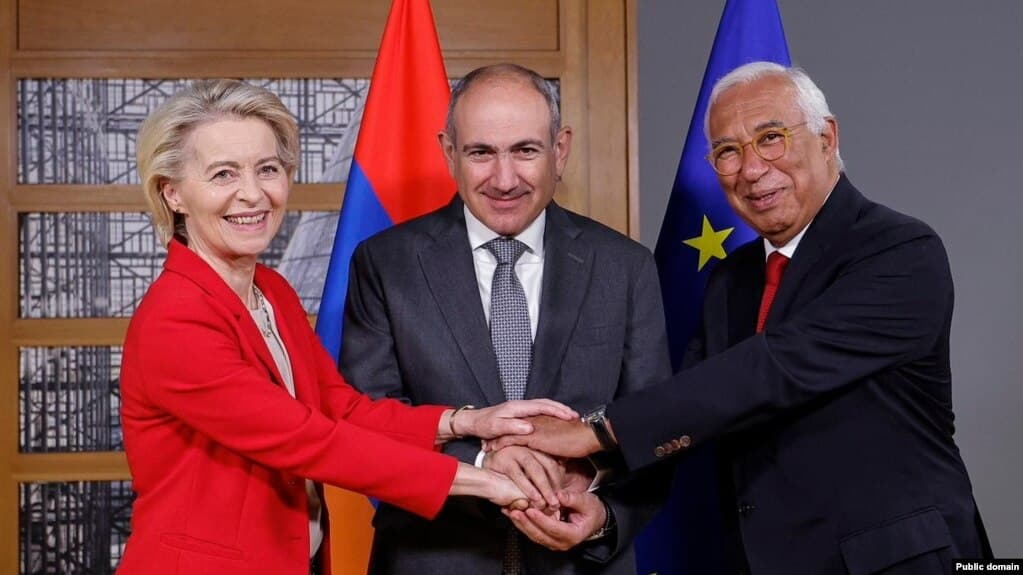EU reaffirms support for Armenia as ties with Tbilisi falter

Armenia has intensified its partnership with the EU and the United States following the collapse of relations with Russia in the wake of the 2023 events in Nagorno-Karabakh
Author
Front News Georgia
The European Union has reaffirmed its strong support for Armenia’s reform efforts and pledged to deepen its partnership with Yerevan, as relations between the EU and Georgia continue to deteriorate.
During a high-level meeting in Brussels on 14 July, Armenian Prime Minister Nikol Pashinyan held talks with European Commission President Ursula von der Leyen and European Council President António Costa. EU leaders praised Armenia’s “ambitious reform agenda” and welcomed the recent adoption of legislation initiating formal steps toward European integration.
Von der Leyen and Costa reiterated the EU’s support for Armenia’s sovereignty, territorial integrity, and democratic reforms, and emphasized the importance of further progress toward visa liberalization. They also discussed expanding cooperation under the EU’s Global Gateway strategy, with €2.5 billion in planned investment in Armenia’s transport and communications sectors. Additionally, EU funding for Armenia in 2024 under the Sustainability and Growth Plan will increase by 50%, rising from €270 million.
The leaders welcomed Armenia’s efforts to normalize ties with Turkey and engage in peace negotiations with Azerbaijan, and expressed readiness to involve the country in broader EU regional and economic initiatives, including the Black Sea Strategy.
Von der Leyen and Costa also thanked Armenia for its cooperation in helping to prevent circumvention of sanctions against Russia and agreed with Pashinyan to continue joint action on this front.
Security cooperation was also on the agenda, including measures to counter foreign disinformation and manipulation. The EU announced €1.5 million in funding to strengthen Armenia’s independent media.
Armenia has intensified its partnership with the EU and the United States following the collapse of relations with Russia in the wake of the 2023 events in Nagorno-Karabakh.
In contrast, the EU’s relationship with Georgia has significantly cooled. Despite already enjoying visa-free travel and candidate status, Georgia’s accession process has stalled under the current government. EU officials have raised serious concerns over policies pursued by the ruling Georgian Dream party, describing them as incompatible with European values. As a result, not only has the enlargement process been paused, but Georgia’s visa-free regime has also come under scrutiny.
Tags:
Armenia




